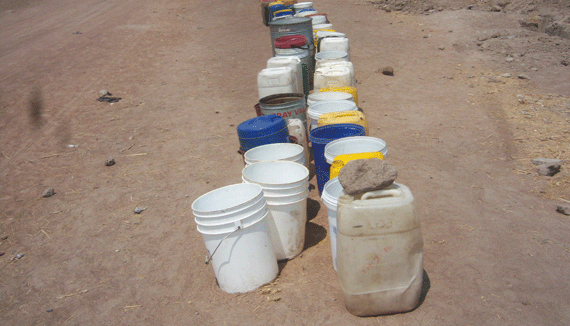
THE dust has almost settled in South Africa as the elections have come and gone. The ANC won, albeit less convincingly than in the 2009 elections.
Despite the reduced margin, credit goes to the man from Nkandla for maintaining a stubborn silence when his critics and detractors where hoping that he would blabber recklessly and blunder to the demise of his party.
The ANC won despite widely publicised instances of corruption, maladministration and monumental failures to regain control of the faltering economy.
A majority of the people of South Africa exercised their type of civic prudence by re-electing the ANC for another five-year term despite the opposition zooming on president Zuma’s shady character. South Africa was not only seen to be preaching democracy, but it also successfully put it into practice.
The South African elections fulfilled all the requirements of peacefulness, freeness and fairness. The element of fairness was fulfilled before, during and after the polls as all political parties had equal opportunities including unrestrained access to all sections of the media.
In line with the spirit of democracy, the political parties exercised their constitutional right and set about discrediting each other.
There were no prisoners taken and no politician was considered sacred or untouchable. Powerful people were openly criticised and also caricatured.
The people were spoiled of choice as they were inundated by dirty and juicy exposes about aspirants to political office. Helen Zille was vilified as a vessel for white domination. Julius Malema was portrayed as an opportunist bent on living lavishly while his supporters lived, ate and slept like paupers.
- Chamisa under fire over US$120K donation
- Mavhunga puts DeMbare into Chibuku quarterfinals
- Pension funds bet on Cabora Bassa oilfields
- Councils defy govt fire tender directive
Keep Reading
Maybe Cope could not cope with the provisions. An observer from outer space would be excused for thinking that candidates revelled in their worst attributes.
Zuma endured the most abuse from a free press that was in pursuit of over-valued democratic rights. The “showerhead” was recalled from retirement and the palatial homestead at Nkandla was brought back to prominence.
To his credit, Zuma danced to the tunes sang by his loyal supporters and ignored what some would consider as an affront to the good person of the president. In our dear Zimbabwe, caricaturing the president before, during and after elections is a crime punishable by lynching by the mob.
The stature of Robert Mugabe is protected with thick walls of legislature so much that it has almost become futile to fairly compete against him for his position. This is where Zimbabwe fails the test of free and fair electioneering.
The ANC had to deal with Cope and EFF, two political parties that boast some surrogacy with the ANC in addition to their perennial rivals the DA. Faced with such adversity, the ANC could have called upon its rough side and traded violence upon voters.
The ANC did not decide to send any militias and storm-troopers to panel beat the masses into a zombie democracy. Instead, there was neither intimidation nor violence. The ANC fought a peaceful campaign and got rewarded with a deserved win.
The South African elections effortlessly fulfilled the basic requirement of peacefulness. There was no bloodletting in the name of a greedy mortal with personal ambitions to public office. There was no rounding up and frog-marching of villagers to attend political meetings and rallies. The army and the police did not suddenly become an overzealous extension of any political party.
At no point were businesses forced to shut down for the day to enable one leader to address a rally. Surely no communities were coerced into donating monies to any political party.
Zimbabweans should have turned green with envy as they watched the election process begin and finish in peace. Some people may argue that the ANC had no reason to employ violence because of projected wins.
This can be disputed as baseless conjecture. The ruling ANC was not assured of an outright win as it had been bedevilled with poor economic performance, labour unrests (remember Marikana?) and endemic corruption. There was a lot at stake.
The South African elections showed the difference between a nation engaged in pretentious democracy such as Zimbabwe and one that is genuine with democracy. South Africa allowed her citizens around the globe to exercise their suffrage without being discriminated against as absentee citizens.
The country’s embassies and consulates around the globe facilitated voting for South Africans in the Diaspora.
Zimbabwe could learn from the South African experience. Zimbabwe needs to enable her citizens in the Diaspora to take part in the electoral process.
The real time posting of the unfolding results during the South African elections is another area that Zimbabwe can learn from. Many people will remember Zimbabwe’s 2008 presidential poll when election officials were either bamboozled by or wilfully co-operated with Zanu PF to withhold the results of the first round of the poll.
If Zimbabwe had an electoral system where results are posted in real time, then the uncertainty of tampering would be eliminated.
Zimbabweans showed a lot of interest in South Africa’s elections. This is proof that they admire the process and would want a similar one in their country.
On the whole, Zimbabweans yearn for peaceful, free and fair elections. For the foreseeable future, the people’s wishes will remain distant and elusive.
Masola waDabudabu is a social commentator










